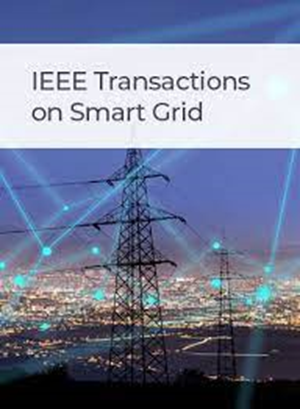集装箱港口物流-能源时空协调调度策略生成的自适应MARL大模型
IF 8.6
1区 工程技术
Q1 ENGINEERING, ELECTRICAL & ELECTRONIC
引用次数: 0
摘要
物流-能源协调显著提高了电气化海港的能源效率。然而,由于环境数据的日常变化,需要重新执行优化过程,从而造成巨大的计算负担。提出了一种用于集装箱港口物流-能源时空协调的自适应多智能体强化学习(MARL)大模型。训练有素的大型模型可以直接从环境数据中生成每个工作日的最优策略,而无需重新求解。为此,首先建立了考虑全电动船舶(AESs)、码头起重机(qc)、自动导引车(agv)和港口配电网(SPDN)时空约束的综合物流-能源协调模型。该模型被表述为马尔可夫决策过程(MDP)。然后建立了一个MARL大模型,包括一个超网络将环境数据映射到最优策略,以及超网络和代理策略网络的特殊结构,以适应任意数量的每日到达AESs。此外,设计了一个级联动作修改层,以确保在复杂的时空约束下正确输出动作。针对大型模型,提出了一种具有两种加速策略的定制训练方法。案例研究表明,训练后的大型模型可以自动生成最优策略,几乎不需要微调,优于需要大量解决时间的现有方法。本文章由计算机程序翻译,如有差异,请以英文原文为准。
An Adaptive MARL Large Model for Dispatch Strategy Generation in Logistics-Energy Spatiotemporal Coordination of Container Seaports
Logistics-energy coordination significantly enhances energy efficiency in electrified seaports. However, daily changes in environment data necessitate the re-implementation of optimization procedures, causing huge computational burdens. This paper proposes an adaptive multi-agent reinforcement learning (MARL) large model for logistics-energy spatiotemporal coordination of container seaports. The well-trained large model can directly generate optimal policy for each operating day from environment data without re-solving. To achieve this, a comprehensive logistics-energy coordination model is first established considering the spatial and temporal constraints of all-electric ships (AESs), quay cranes (QCs), auto guided vehicles (AGVs), and the seaport power distribution network (SPDN). The model is formulated as a Markov Decision Process (MDP). Then a MARL large model is developed, involving a hypernetwork mapping environment data to optimal policy, and special structures for both hypernetwork and agent policy networks to adapt to any number of daily arrival AESs. Additionally, a cascading action modification layer is designed to ensure correct action outputs within complex spatiotemporal constraints. A tailored training method with two acceleration strategies are developed for the large model. Case studies illustrate that the large model after training can automatically generate optimal policies with little to no fine-tuning, outperforming existing methods that require extensive solution time.
求助全文
通过发布文献求助,成功后即可免费获取论文全文。
去求助
来源期刊

IEEE Transactions on Smart Grid
ENGINEERING, ELECTRICAL & ELECTRONIC-
CiteScore
22.10
自引率
9.40%
发文量
526
审稿时长
6 months
期刊介绍:
The IEEE Transactions on Smart Grid is a multidisciplinary journal that focuses on research and development in the field of smart grid technology. It covers various aspects of the smart grid, including energy networks, prosumers (consumers who also produce energy), electric transportation, distributed energy resources, and communications. The journal also addresses the integration of microgrids and active distribution networks with transmission systems. It publishes original research on smart grid theories and principles, including technologies and systems for demand response, Advance Metering Infrastructure, cyber-physical systems, multi-energy systems, transactive energy, data analytics, and electric vehicle integration. Additionally, the journal considers surveys of existing work on the smart grid that propose new perspectives on the history and future of intelligent and active grids.
 求助内容:
求助内容: 应助结果提醒方式:
应助结果提醒方式:


